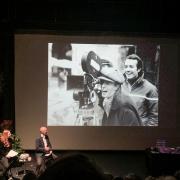A tractor journey from Dorset to Cornwall helped raise awareness for the Farming Community Network. Now with the help of the Prince’s Countryside Fund this organisation can support even more people
Despite being a young farmer for more than nine years former Gillingham School student Tess Cadman had never been behind the wheel of a tractor until she decided to travel to the Federation of Young Farmers annual games weekend in Newquay by jumping into the cab of a Claas. To mark her first year as chairman of the South West Area Federation of Young Farmers, Tess planned to use the 315 mile tractor journey to raise money for the Farming Community Network. This organisation help to support rural families during times of hardship, and Tess wanted to tell people about their work even if it meant bringing traffic to a standstill.
Tess’ fundraising journey began from her office at Kingston Maurward College just outside Dorchester, and took in each of the federation’s county offices in Wiltshire, Gloucestershire, Somerset, Devon and Cornwall along the way. The epic three day tractor ride ended in Newquay, where she arrived to a hero’s welcome just in time for the games.
Although Tess does not come from a farming background, she felt the Farming Community Network (FCN) was a worthy recipient of her fundraising efforts. “The Farming Community Network supports the whole area, providing help with business issues such as finances; family concerns such as retirement, succession and relationship break-ups; health issues such as depression, suicidal feelings and isolation and farm issues such as animal welfare and disease. I felt that this was particularly relevant in view of the flooding disasters the area has been experiencing.”
Offering support across Dorset is a team of just seven FCN volunteers. They are on call to offer any assistance they can during some of a farmer’s darkest hours. Nick Viney is the FCN co-ordinator for Dorset: “We have all had quite a lot of farming experience ourselves and are mostly coming up to retirement age,” he explains. “We are mostly called upon to assist with matters of finance or bureaucracy but sometimes we can be called upon during times of depression or bereavement. There are also situations where we offer advice to those who probably need to stop farming but can’t quite make that decision or don’t know their way through it. In these situations we work through whatever they are dealing with.”
As an organisation with a strong Christian ethic the group’s volunteers make themselves available to offer confidential support to any member of the farming community, regardless of religion, whether the issue is related to the farm business or the farm household.
“There are a lot of people in farming who are under enormous pressure and who have to make a lot of decisions on their own,” says Nick. “For example, farmers’ wives who have lost their husbands young in their 50s but are still milking their cows every day, or tenant farmers who may not have a house, but are carrying on so they aren’t homeless. There is still a huge amount of pride involved.”
In Nick’s experience it’s mostly the men who won’t share or even talk to their wives about the pressure they are under. “Typically it’s the farmer’s wife who rings up and says ‘my husband isn’t acting normally’. We go to visit and see the classic signs of depression. If you’re clinically depressed you can’t make decisions and one of the things you have to do in farming is make good decisions - or you’re going to get into even deeper trouble.
“But for them to talk to someone who is detached from the situation – but also understands what it is to be a farmer really helps. That is the key thing that we’re offering: emotional support and sometimes mental support in difficult situations. One in four people have some kind of mental health problem during their lives, why should the farming community be any different, even in a small county like Dorset?”
In order for the FCN to be on the ground to support members of the farming community it relies on having volunteers in each quarter of Dorset, and some areas were struggling to find volunteers. “There hadn’t been anyone in Purbeck before I arrived,” Nick reveals. “I now have the invisible label of being the person to go to for that area. But there are areas of the county that haven’t got that, and one of my aims is to have better coverage as not enough people in the Dorset farming community know about us. Quite often we are told that farmers didn’t know anything about us, or that they wished they had heard of the FCN sooner.”
This is one area that the Prince’s Countryside Fund has offered its support, as the FCN’s fundraising manager Peter Riley explains: “The Prince’s Countryside Fund has been very supportive of FCN particularly in terms of making a grant for two major projects, which has enabled us to advertise our name and promote our services to a wider area.
“Secondly we are in the early stages of putting together a team of specialist volunteers who will be trained to look critically at a farm business. They will then organise appropriate professional guidance and advice to help farmers decide where the future might lie and offer even more specialist support for those who might need it.”



























